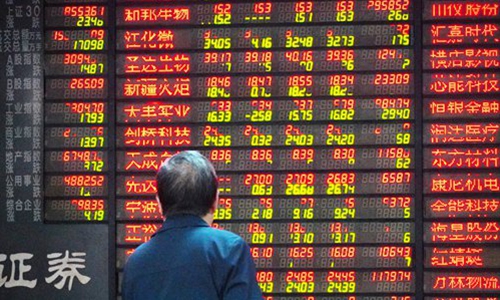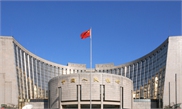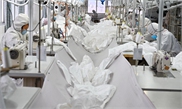COMMENTS / COLUMNISTS
Before seeing the coronavirus off, China needs to keep loose financial policy

File photo
Despite the fallout from the relentless assault of COVID-19, the deadly novel coronavirus pneumonia, China's equities market has been boisterous lately with rising indexes and amassing capital input as investors are elated to see strong financial and fiscal policy support from top decision-makers.Beijing will take all measures in its capacity to restore investor confidence, because global markets have shuddered at the potentially damaging impact of the deadly virus on economic growth, pundits said.
New virus infections in China's mainland, excluding Central China's Hubei Province where the virus was believed to surface in early December, have witnessed a consecutive 12-day decline by Sunday. Cities like Shanghai and Beijing are reporting single-digit daily additional cases now.
If the drop is sustained for a couple of more days, people's concern over virus infection will gradually disperse, and a massive number of workers will return to their work positions. With businesses largely coming to normalcy, economic losses resulting from virus-incurred transportation shutdowns and supply disruptions will be stopped.
Based on this optimism, investors are now snapping up Chinese equities. China's stock market gained a total in the past 11 trading days since reopening after a long Spring Festival holiday.
In the coming days, investors anticipate more policy easing measures from the regulators - in the form of fiscal and monetary policy combination - to aid the fight against the virus and inject fresh funds to light up the real economy, which has been brought to a de-facto standstill since late January when the virus was on its full-force onslaught.
On February 20, the People's Bank of China, the central bank, is expected to lower the benchmark Loan Prime Rate (LPR) by 10-15 basis points, a pivotal move to reduce the borrowing cost for businesses. Also, the bank is expected to cut the required reserve ratio (RRR) for commercial lenders in March to ensure ample bank system liquidity.
Since the coronavirus erupted, the central bank has injected 1.7 trillion yuan ($243 trillion) into the financial system, in addition to setting up a 300 billion yuan special re-lending fund to assist companies that manufacture emergency medical supplies and medicines or help combat the virus in other ways. The Ministry of Finance subsidizes the interest expense for those companies and the actual interest costs stand at an annualized 1.6 percent, which is extraordinarily cheap compared with the broad market rates.
In addition to the central bank's rate cuts, the policy-makers are expected to buoy growth by boosting fiscal spending in the near term. Several days ago, the finance ministry allowed regional authorities to issue an extra 848 billion yuan of debt, in addition to 1 trillion yuan debt issued at the end of 2019, so that local governments are able to promptly finance big-item infrastructure projects.
China has reserved more policy tools to support its giant economy, which makes up 16 percent of the world's total. However, the most urgent task is to put the virus outbreak under strict control, most importantly in Hubei Province, the epicenter.
However, as the economy is now driven more by consumption and services and the growth is facing a downward trajectory, it won't be easy to eliminate all the crippling negative impacts of the viral crisis in a short period.
The severely clobbered industries - catering, logistics, transportation, tourism and retail - call for specially choreographed policy measures to support and revive. Tax and fee exemptions could be rushed to the sectors, which provide the jobs to feed many in this hugely populous country.
Starting in late April or early May when China anticipates to finally clear the virus from its body, China's economy will pick up strong growth again as people swarm outdoors, stay out later at night, and snap up everything in their paths. After domestic consumption comes back with a vengeance, the government could move to take back some of its stimulus when the happy days return.
The author is an editor with the Global Times. bizopinion@globaltimes.com.cn


